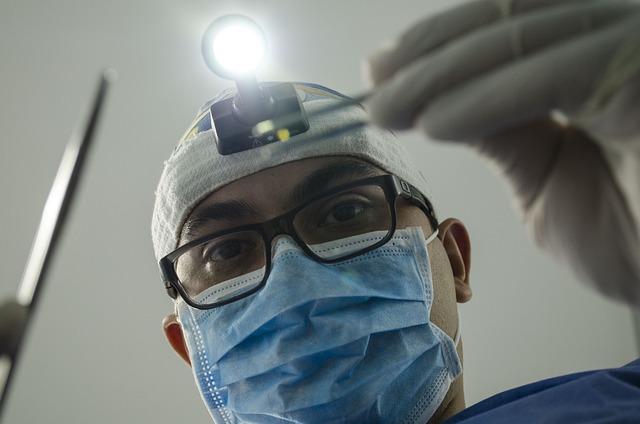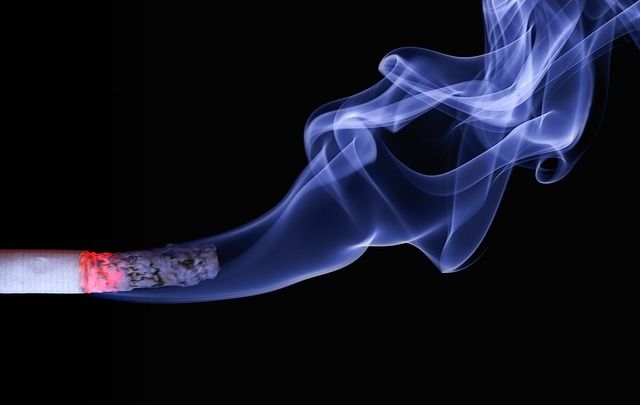Can I Vape 48 Hours After Tooth Extraction? Learn More
Are you a vape enthusiast who recently underwent a tooth extraction? If so, you might be wondering when it’s safe to indulge in your favorite pastime again. The answer isn’t as straightforward as you might hope, but fear not! In this article, we will delve into the question of whether you can vape just 48 hours after a tooth extraction. Equipped with expert knowledge and a neutral standpoint, we aim to provide you with a clear understanding of the facts. So, without further ado, let’s explore the world of tooth extractions and vaping, and discover what you need to know.
1. Understanding the Healing Process: What Happens After a Tooth Extraction?
After a tooth extraction, it is crucial to understand the healing process to ensure proper care and avoid complications. Here’s what happens in your mouth as you recover:
Formation of a Blood Clot: Immediately after the extraction, a blood clot forms in the empty socket. This clot acts as a protective barrier, promoting healing and preventing infection. It is important to avoid dislodging the clot by refraining from rinsing your mouth vigorously, using a straw, or smoking.
- Swelling and Discomfort: It is normal to experience some swelling and discomfort after the procedure. Applying an ice pack to the affected area for 10 minutes at a time can help reduce swelling. Over-the-counter pain relievers, as recommended by your dentist, can also provide relief.
- Bone and Soft Tissue Healing: Over the next few weeks, the bone and soft tissues in the socket begin to heal. New bone gradually forms to fill the gap left by the extracted tooth, while the gum tissue grows over the area. Maintaining good oral hygiene by gently brushing your teeth and avoiding the extraction site can help prevent infection and promote healing.
Dietary Restrictions: It is essential to follow a soft food diet for the first few days after the extraction. Stick to foods like yogurt, mashed potatoes, and soup. Avoid hard, chewy, or spicy foods that can irritate the extraction site and cause discomfort or complications.

2. The Effects of Vaping on Post-Extraction Healing: A Comprehensive Guide
Vaping has gained popularity in recent years, but what impact does it have on post-extraction healing? It is important to understand the potential effects of vaping on the healing process to make informed decisions. Here is a comprehensive guide to help you navigate this topic.
1. Delayed Healing: Vaping introduces harmful substances into the body, such as nicotine and toxins, which can impede the healing process after tooth extraction. These substances can constrict blood vessels, reducing blood flow to the extraction site and slowing down the formation of new blood vessels needed for proper healing. This delay in healing can lead to complications like dry socket, infection, and prolonged discomfort.
2. Increased Risk of Infection: Vaping exposes the oral cavity to various chemicals that can weaken the immune system, making it more susceptible to infections. The heat from vaping devices can also cause tissue damage, creating an entry point for bacteria. This increased risk of infection can significantly impact the healing process and may result in complications that require additional treatment.

3. Timing is Everything: Can You Safely Vape 48 Hours After a Tooth Extraction?
After undergoing a tooth extraction, it is crucial to follow proper post-operative care to ensure a smooth recovery. One question that often arises is whether it is safe to vape just 48 hours after the procedure. While it may be tempting to indulge in your favorite vape flavors, it is important to understand the potential risks involved and make an informed decision.
1. Healing Process: Tooth extractions require time for the extraction site to heal properly. During the first 48 hours, the blood clot that forms in the socket is crucial for the healing process. Any disruption to this clot can lead to a painful condition called dry socket, delaying the healing and causing further complications. Therefore, it is advisable to avoid any activities that could dislodge the clot, including vaping, during this initial healing period.
2. Chemical Irritation: Vaping involves inhaling and exhaling aerosolized substances, including nicotine and flavorings. These chemicals can potentially irritate the extraction site and hinder the healing process. Furthermore, the heat generated by vaping devices may also have adverse effects on the blood clot and the surrounding tissues. It is essential to prioritize your oral health and allow your body ample time to heal before reintroducing any potential irritants.

4. Potential Risks and Complications: Examining the Consequences of Vaping Too Soon
In recent years, vaping has gained popularity as an alternative to traditional smoking. However, it is essential to be aware of the potential risks and complications associated with vaping, especially if it is taken up too soon. Here, we will examine the consequences and shed light on the importance of cautious vaping.
1. Nicotine Addiction: Vaping too soon can expose young individuals to nicotine addiction, which can have long-term consequences on their health and well-being. Nicotine is a highly addictive substance, and the developing brains of teenagers are particularly susceptible to its effects. Vaping at an early age can lead to a lifelong addiction, making it challenging for individuals to quit in the future.
2. Respiratory Issues: Inhalation of chemicals present in vape aerosols can result in various respiratory problems. Studies have shown that vaping can cause irritation in the airways and lead to symptoms such as coughing, wheezing, and shortness of breath. Additionally, the heating elements in vape devices can release harmful substances, including heavy metals and volatile organic compounds, which can further aggravate respiratory issues.

5. Expert Recommendations: When is the Optimal Time to Resume Vaping After Tooth Extraction?
After a tooth extraction, it is crucial to follow expert recommendations regarding the optimal time to resume vaping. While each individual’s healing process may vary, there are general guidelines that can help prevent complications and promote successful recovery.
1. Consult your dentist: It is essential to consult your dentist before making any decisions about when to resume vaping after a tooth extraction. Your dentist will evaluate your specific case and provide personalized advice based on factors such as the complexity of the extraction, the condition of your gums, and your overall oral health.
2. Allow adequate healing time: Give your mouth ample time to heal before resuming vaping. This typically takes about 48 to 72 hours after the extraction. During this period, avoid any activities that could disrupt the blood clot in the extraction site, such as vaping, smoking, or using straws. Disrupting the clot can lead to painful conditions like dry socket, which hinders the healing process.
6. Supporting Your Healing Journey: Alternatives to Vaping During the Recovery Period
During the recovery period, it’s important to explore alternatives to vaping that can support your healing journey. By finding healthier alternatives, you can gradually reduce your dependence on vaping and improve your overall well-being. Here are some options to consider:
- Nicotine replacement therapy (NRT): NRT products such as patches, gum, lozenges, and inhalers can provide a controlled dose of nicotine without the harmful effects of vaping. They can help alleviate withdrawal symptoms and gradually wean you off nicotine altogether.
- Behavioral therapies: Seeking professional help through counseling or therapy can be highly effective in addressing the underlying reasons for your vaping habit. Therapists can help you develop coping mechanisms, identify triggers, and provide support throughout your recovery journey.
- Positive distractions: Engaging in activities that distract you from the urge to vape can be immensely helpful. Consider picking up a new hobby, spending time with friends and family, or getting involved in a community group or club. These positive distractions can shift your focus away from vaping and provide a healthier outlet for stress or boredom.
Remember, finding the right alternative may require some trial and error. What works for one person may not work for another, so it’s essential to be patient and open to trying different approaches. Gradually replacing vaping with healthier alternatives will not only support your healing journey but also pave the way for a vape-free future.
7. Final Thoughts: Prioritizing Oral Health and Making Informed Decisions
When it comes to maintaining good oral health, prioritization is key. By making informed decisions about our oral hygiene habits, we can significantly improve our overall well-being. The first step in prioritizing oral health is to establish a consistent dental care routine. This includes brushing your teeth at least twice a day with a fluoride toothpaste and flossing daily to remove plaque and food particles. Regular dental check-ups and professional cleanings are also essential to catch any potential issues early on.
- Brush your teeth at least twice a day with a fluoride toothpaste.
- Floss daily to remove plaque and food particles.
- Schedule regular dental check-ups and professional cleanings.
Additionally, it is crucial to be mindful of our dietary choices, as they can greatly impact our oral health. Limiting the consumption of sugary foods and drinks can help prevent tooth decay and gum disease. Opting for a well-balanced diet rich in fruits, vegetables, and calcium-rich foods can provide the necessary nutrients for strong teeth and gums. Lastly, avoiding tobacco products and excessive alcohol consumption can further protect our oral health and reduce the risk of oral cancer.
- Limit the consumption of sugary foods and drinks to prevent tooth decay and gum disease.
- Incorporate a well-balanced diet with fruits, vegetables, and calcium-rich foods.
- Avoid tobacco products and excessive alcohol consumption to protect oral health.
Frequently Asked Questions
Q: Can I vape 48 hours after a tooth extraction?
A: Yes, you can vape 48 hours after a tooth extraction, but it is not recommended.
Q: Why is it not recommended to vape after a tooth extraction?
A: Vaping involves inhaling substances that can be harmful to the healing process of your extraction site. The heat, chemicals, and irritants from vaping can potentially delay healing and increase the risk of complications.
Q: What are the potential complications of vaping after a tooth extraction?
A: Vaping after a tooth extraction can lead to dry socket, a condition where the blood clot that forms in the extraction site is dislodged or dissolves. This can cause severe pain, delayed healing, and potential infection.
Q: How does vaping affect the healing process?
A: Vaping exposes the extraction site to heat, nicotine, and various chemicals present in e-cigarettes or vape liquids. These substances can interfere with blood flow and negatively impact the healing process, potentially leading to complications.
Q: When is it safe to resume vaping after a tooth extraction?
A: It is best to wait until the extraction site has fully healed, which usually takes around one to two weeks. However, it is advisable to consult with your dentist before resuming vaping or using any nicotine products after a tooth extraction.
Q: What alternatives can I consider instead of vaping during the healing period?
A: To promote a smooth healing process, it is recommended to avoid any form of smoking or vaping. Consider using nicotine patches, gum, or other nicotine replacement therapies if you are unable to abstain from nicotine during this time. However, always consult your dentist or healthcare provider for personalized advice.
Q: How can I ensure a successful healing process after a tooth extraction?
A: It is crucial to follow your dentist’s post-operative instructions, which may include maintaining oral hygiene, avoiding strenuous activities, eating soft foods, and refraining from smoking or vaping. These measures will help minimize the risk of complications and support a successful healing process.
Q: Are there any other concerns I should be aware of regarding vaping and tooth extraction?
A: Yes, it is important to note that vaping can also have adverse effects on oral health in general, such as dry mouth, gum disease, and tooth decay. Quitting or reducing vaping altogether can significantly improve your overall oral health and reduce the risk of future complications.
Key Takeaways
In conclusion, the question of whether you can vape 48 hours after a tooth extraction has been thoroughly explored. Based on our knowledgeable insights, it is strongly recommended to refrain from vaping during this crucial healing period. The suction created while vaping can potentially dislodge the blood clot and impede the healing process, leading to complications and prolonged recovery time.
It is crucial to prioritize your oral health and follow your dentist’s instructions diligently. By avoiding vaping for the recommended 48-hour period, you will allow your body to heal properly, minimizing the risk of infections and further complications.
Remember, each individual’s healing process may vary, so it is always wise to consult with your dentist or oral surgeon for personalized advice. Your oral health should be treated with utmost care, and by making informed decisions, you can ensure a smooth and successful recovery after tooth extraction.
Take control of your healing journey by prioritizing your oral health, and be patient as your body works to restore itself. By following these guidelines, you can pave the way for a healthy and speedy recovery, allowing you to get back to your normal routine with a confident smile.






